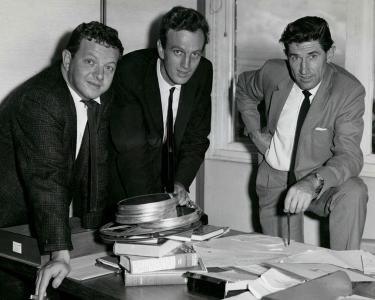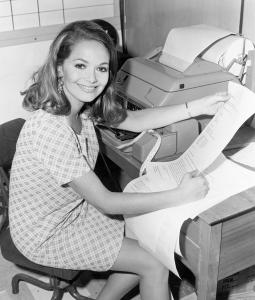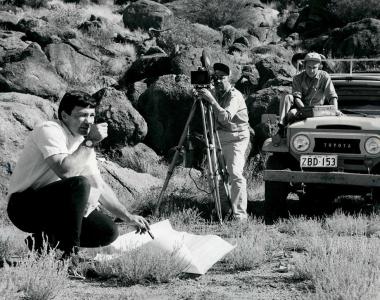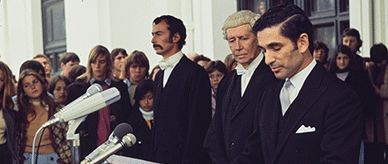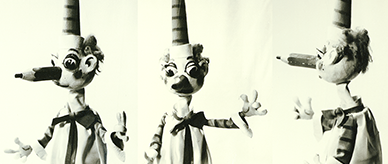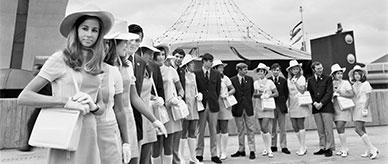Don Dunstan talking to female reporter in 1974:
'Everything that you have been trying to say during this interview has been set at, to endeavour to imply impropriety, unfairness, bias or misuse of public monies. You've come here to do a hostile interview now that's what you have, come on. What you've done so far – you started today with a question as to why I had refused, you said, to talk to you before. So you started out on a hostile basis anyway didn't you!'
Host Clive Hale: 'Today 10 years of TDT – well not a lot of has changed… Don Dunstan still remains in power he is still easily available for interviews, perhaps he more often gets highly critical when he thinks that TDT, or any part of the media for that matter, is either inaccurate or sensation seeking. But apart from that he thinks…
Dunstan: 'TDT is absolutely essential the people in Australia, and I believe that overall, it is a very great benefit to people in Australia'
Interviewer: 'Well given that the government has the duty to govern would you agree with the media has a right indeed duty itself to question how will that government governs?'
Dunstan: 'Of course yes of course. It's got the right; it's got a DUTY to do it.
Interviewer: 'On TDT's 10th anniversary, what are your wishes for the program?'
Dunstan: 'Well I hope that the program will continue, that it will continue to be well funded so that it's able to do the work of public information, that is quite essential in a democracy. Unless people can get probing and effective reports about current affairs then democracy can't work. And I want to see television doing their job and TDT is an excellent way of doing it.'
Comedy skit
'For gor sake, stop laughing, this is TDT'
Puppet with politician's voice hit with bucket of water.
'What about a word from the treasurer?' – 'Money!'
'In Canberra Tonight came to you live from parliament! The parliamentary Labor Party appeared by permission of the militant unions. The Liberal Party appeared by courtesy of Conzinc RioTinto and the multinationals. Billy Snedden appeared more boring than usual. Politicians in Canberra tonight stay at vast public expense!'
(Karate chop)
'In the beginning there was Gough. And darkness was on the face of the electorate, until the spirit of Gough moved over Lake Burley Griffin. And Gough said, it's time. And he did cause a great campaign to go across the land. And Gough saw the campaign and it was good, even unto Nugget Coombs. “There can be the trap, if one's too confident.” Get the ring of confidence with new Parliadent (Parliament) (toothpaste), “New Parliadent with double dissolution fights bad breath and keeps your teeth laughing clean”.

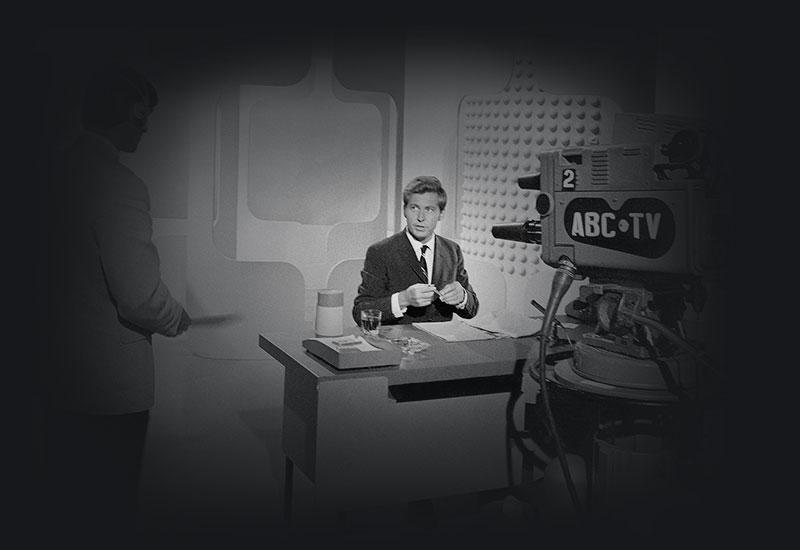
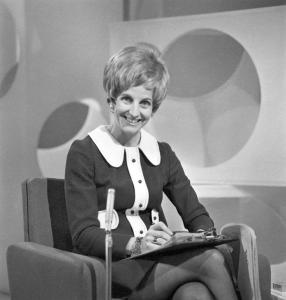
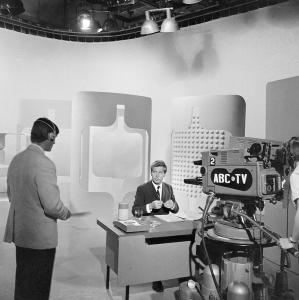
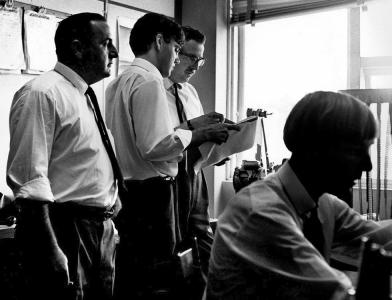
![Ken Chown executive producer of TDT responding to a complaint and a letter to Bill [Peach]? from Anonymous complementing him on This Day Tonight journalism.](/sites/default/files/styles/carousel_single_image_display/public/2025-06/Gallery--letter-TDT-14684747-15228234.png?itok=i3-kE7YS)
